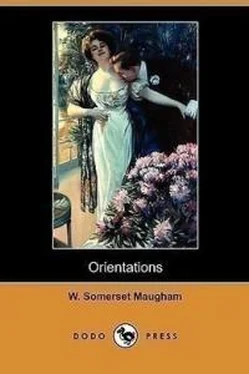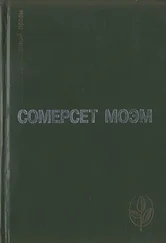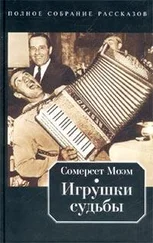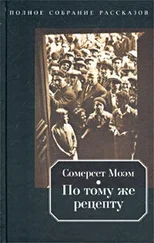Уильям Моэм - Orientations
Здесь есть возможность читать онлайн «Уильям Моэм - Orientations» весь текст электронной книги совершенно бесплатно (целиком полную версию без сокращений). В некоторых случаях можно слушать аудио, скачать через торрент в формате fb2 и присутствует краткое содержание. Год выпуска: 2014, Издательство: epubBooks Classics, Жанр: Классическая проза, на английском языке. Описание произведения, (предисловие) а так же отзывы посетителей доступны на портале библиотеки ЛибКат.
- Название:Orientations
- Автор:
- Издательство:epubBooks Classics
- Жанр:
- Год:2014
- ISBN:нет данных
- Рейтинг книги:5 / 5. Голосов: 1
-
Избранное:Добавить в избранное
- Отзывы:
-
Ваша оценка:
- 100
- 1
- 2
- 3
- 4
- 5
Orientations: краткое содержание, описание и аннотация
Предлагаем к чтению аннотацию, описание, краткое содержание или предисловие (зависит от того, что написал сам автор книги «Orientations»). Если вы не нашли необходимую информацию о книге — напишите в комментариях, мы постараемся отыскать её.
Orientations — читать онлайн бесплатно полную книгу (весь текст) целиком
Ниже представлен текст книги, разбитый по страницам. Система сохранения места последней прочитанной страницы, позволяет с удобством читать онлайн бесплатно книгу «Orientations», без необходимости каждый раз заново искать на чём Вы остановились. Поставьте закладку, и сможете в любой момент перейти на страницу, на которой закончили чтение.
Интервал:
Закладка:
But he turned back resolutely, and, going to his room, opened his books and began reading. He rubbed his eyes and frowned, in order to fix his attention, but the book said nothing but Valentia. At last he threw it aside and took his Plato and his dictionary, commencing to translate a difficult passage, word for word. But whenever he looked up a word he could only see Valentia, and he could not make head or tail of the Greek. He threw it aside also, and set out walking. He walked as hard as he could—away from Monnickendam.
The second day was not quite so difficult, and he read till his mind was dazed, and then he wrote letters home and told them he was enjoying himself tremendously, and he walked till he felt his legs dropping off.
Next morning it occurred to him that Valentia might have written. Trembling with excitement, he watched the postman coming down the street—but he had no letter for Ferdinand. There would be no more post that day.
But the next day Ferdinand felt sure there would be a letter for him; the postman passed by the hotel door without stopping. Ferdinand thought he should go mad. All day he walked up and down his room, thinking only of Valentia. Why did she not write?
The night fell and he could see from his window the moon shining over the clump of trees about Monnickendam church—he could stand it no longer. He put on his hat and walked across country; the three miles were endless; the church and the trees seemed to grow no nearer, and at last, when he thought himself close, he found he had a bay to walk round, and it appeared further away than ever.
He came to the mouth of the canal along which he and Valentia had so often walked. He looked about, but he could see no one. His heart beat as he approached the little bridge, but Valentia was not there. Of course she would not come out alone. He ran to the hotel and asked for her. They told him she was not in. He walked through the town; not a soul was to be seen. He came to the church; he walked round, and then—right at the edge of the trees—he saw a figure sitting on a bench.
She was dressed in the same flowered dress which she had worn when he likened her to a Dresden shepherdess; she was looking towards Volendam.
He went up to her silently. She sprang up with a little shriek.
'Ferdinand!'
'Oh, Valentia, I cannot help it. I could not remain away any longer. I could do nothing but think of you all day, all night. If you knew how I loved you! Oh, Valentia, have pity on me! I cannot be your friend. It's all nonsense about friendship; I hate it. I can only love you. I love you with all my heart and soul, Valentia.'
She was frightened.
'Oh! how can you stand there so coldly and watch my agony? Don't you see? How can you be so cold?'
'I am not cold, Ferdinand,' she said, trembling. 'Do you think I have been happy while you were away?'
'Valentia!'
'I thought of you, too, Ferdinand, all day, all night. And I longed for you to come back. I did not know till you went that—I loved you.'
'Oh, Valentia!'
He took her in his arms and pressed her passionately to him.
'No, for God's sake!'
She tore herself away. But again he took her in his arms, and this time he kissed her on the mouth. She tried to turn her face away.
'I shall kill myself, Ferdinand!'
'What do you mean?'
'In those long hours that I sat here looking towards you, I felt I loved you—I loved you as passionately as you said you loved me. But if you came back, and—anything happened—I swore that I would throw myself in the canal.'
He looked at her.
'I could not—live afterwards,' she said hoarsely. 'It would be too horrible. I should be—oh, I can't think of it!'
He took her in his arms again and kissed her.
'Have mercy on me!' she cried.
'You love me, Valentia.'
'Oh, it is nothing to you. Afterwards you will be just the same as before. Why cannot men love peacefully like women? I should be so happy to remain always as we are now, and never change. I tell you I shall kill myself.'
'I will do as you do, Valentia.'
'You?'
'If anything happens, Valentia,' he said gravely, 'we will go down to the canal together.'
She was horrified at the idea; but it fascinated her.
'I should like to die in your arms,' she said.
For the second time he bent down and took her hands and kissed them. Then she went alone into the silent church, and prayed.
VII
They went home. Ferdinand was so pleased to be at the hotel again, near her. His bed seemed so comfortable; he was so happy, and he slept, dreaming of Valentia.
The following night they went for their walk, arm in arm; and they came to the canal. From the bridge they looked at the water. It was very dark; they could not hear it flow. No stars were reflected in it, and the trees by its side made the depth seem endless. Valentia shuddered. Perhaps in a little while their bodies would be lying deep down in the water. And they would be in one another's arms, and they would never be separated. Oh, what a price it was to pay! She looked tearfully at Ferdinand, but he was looking down at the darkness beneath them, and he was intensely grave.
And they wandered there by day and looked at the black reflection of the trees. And in the heat it seemed so cool and restful….
They abandoned their work. What did pictures and books matter now? They sauntered about the meadows, along shady roads; they watched the black and white cows sleepily browsing, sometimes coming to the water's edge to drink, and looking at themselves, amazed. They saw the huge–limbed milkmaids come along with their little stools and their pails, deftly tying the cow's hind legs that it might not kick. And the steaming milk frothed into the pails and was poured into huge barrels, and as each cow was freed, she shook herself a little and recommenced to browse.
And they loved their life as they had never loved it before.
One evening they went again to the canal and looked at the water, but they seemed to have lost their emotions before it. They were no longer afraid. Ferdinand sat on the parapet and Valentia leaned against him. He bent his head so that his face might touch her hair. She looked at him and smiled, and she almost lifted her lips. He kissed them.
'Do you love me, Ferdinand?'
He gave the answer without words.
Their faces were touching now, and he was holding her hands. They were both very happy.
'You know, Ferdinand,' she whispered, 'we are very foolish.'
'I don't care.'
'Monsieur Rollo said that folly was the chief attribute of man.'
'What did he say of love?'
'I forget.'
Then, after a pause, he whispered in her ear,—
'I love you!'
And she held up her lips to him again.
'After all,' she said, 'we're only human beings. We can't help it. I think—'
She hesitated; what she was going to say had something of the anti–climax in it.
'I think—it would be very silly if—if we threw ourselves in the horrid canal.'
'Valentia, do you mean—?'
She smiled charmingly as she answered,—
'What you will, Ferdinand.'
Again he took both her hands, and, bending down, kissed them…. But this time she lifted him up to her and kissed him on the lips.
VIII
One night after dinner I told this story to my aunt.
'But why on earth didn't they get married?' she asked, when I had finished.
'Good Heavens!' I cried. 'It never occurred to me.'
'Well, I think they ought,' she said.
'Oh, I have no doubt they did. I expect they got on their bikes and rode off to the Consulate at Amsterdam there and then. I'm sure it would have been his first thought.'
'Of course, some girls are very queer,' said my aunt.
Читать дальшеИнтервал:
Закладка:
Похожие книги на «Orientations»
Представляем Вашему вниманию похожие книги на «Orientations» списком для выбора. Мы отобрали схожую по названию и смыслу литературу в надежде предоставить читателям больше вариантов отыскать новые, интересные, ещё непрочитанные произведения.
Обсуждение, отзывы о книге «Orientations» и просто собственные мнения читателей. Оставьте ваши комментарии, напишите, что Вы думаете о произведении, его смысле или главных героях. Укажите что конкретно понравилось, а что нет, и почему Вы так считаете.










